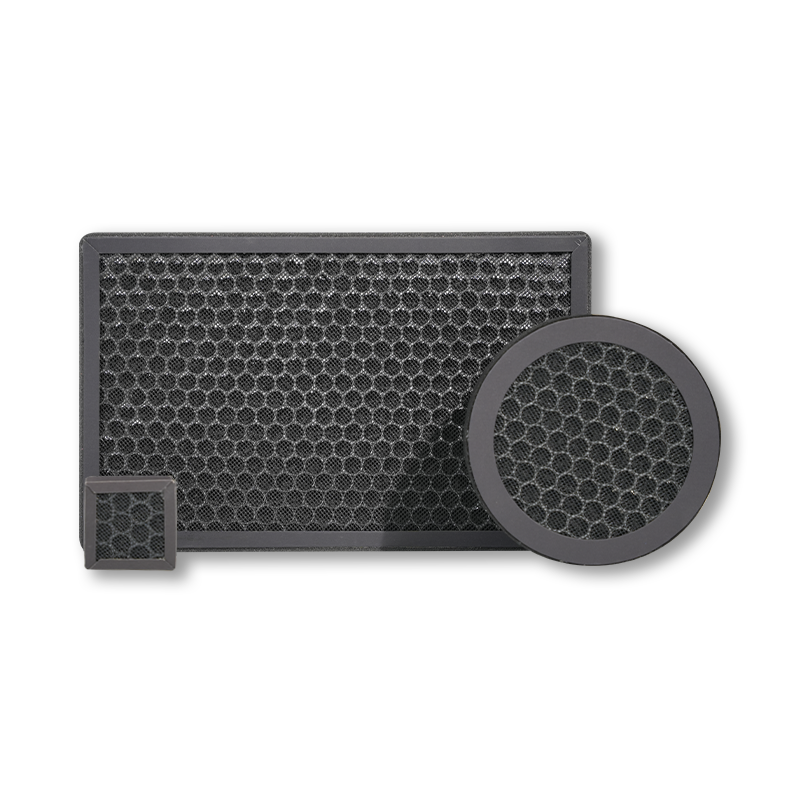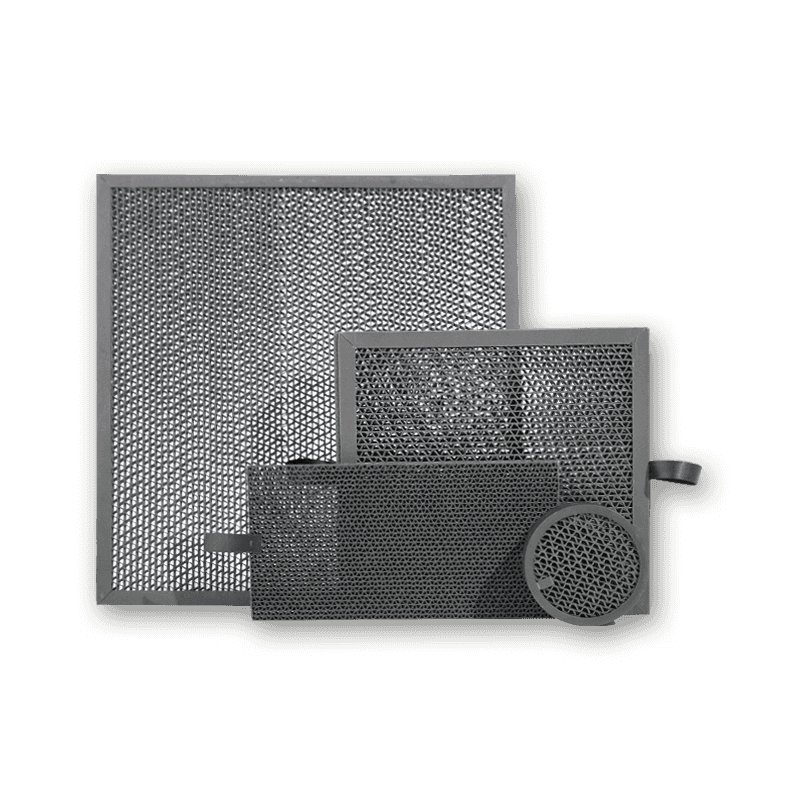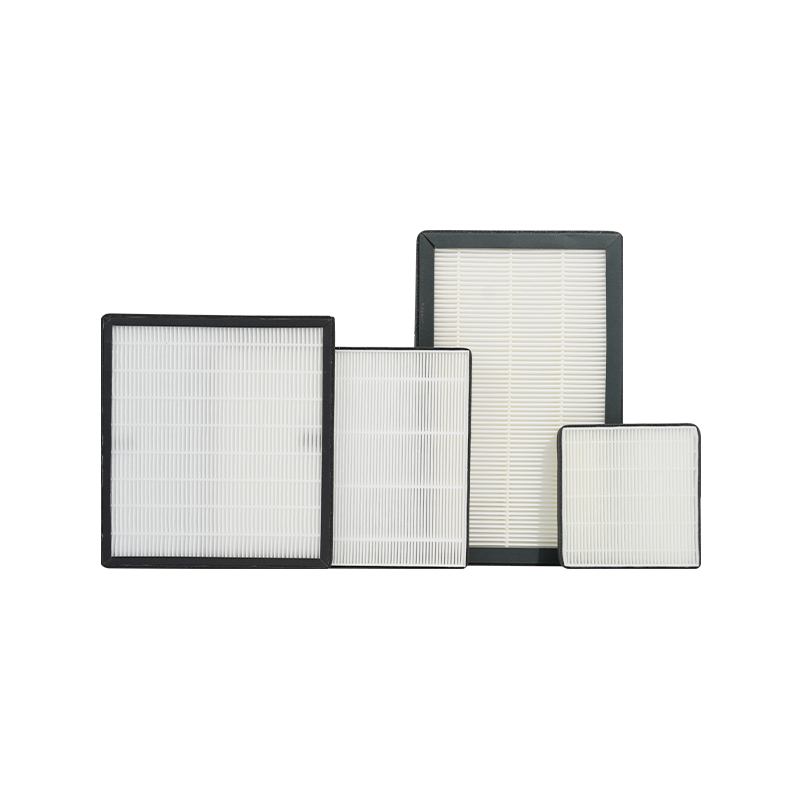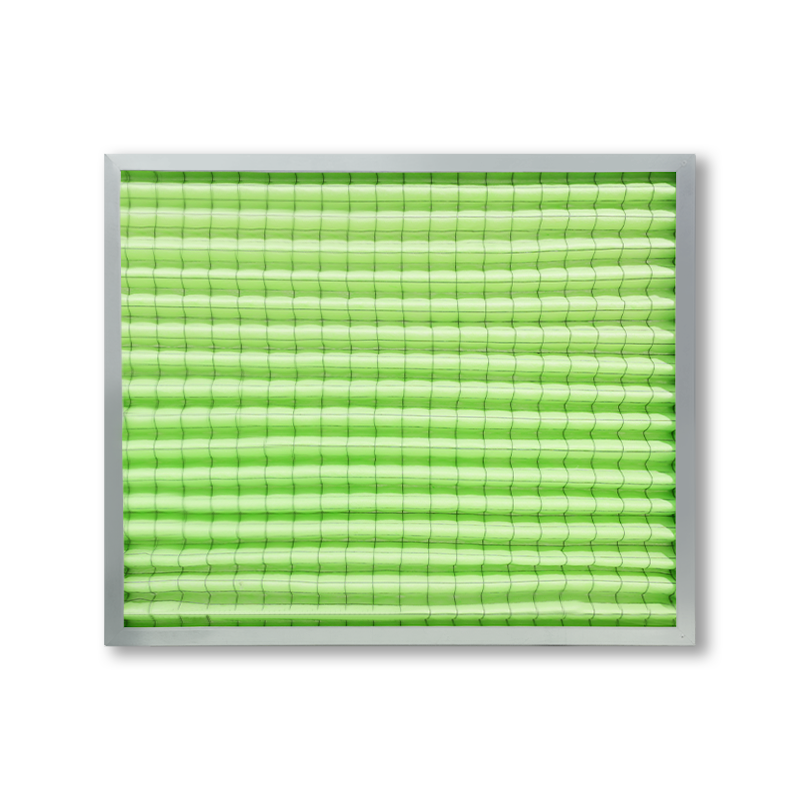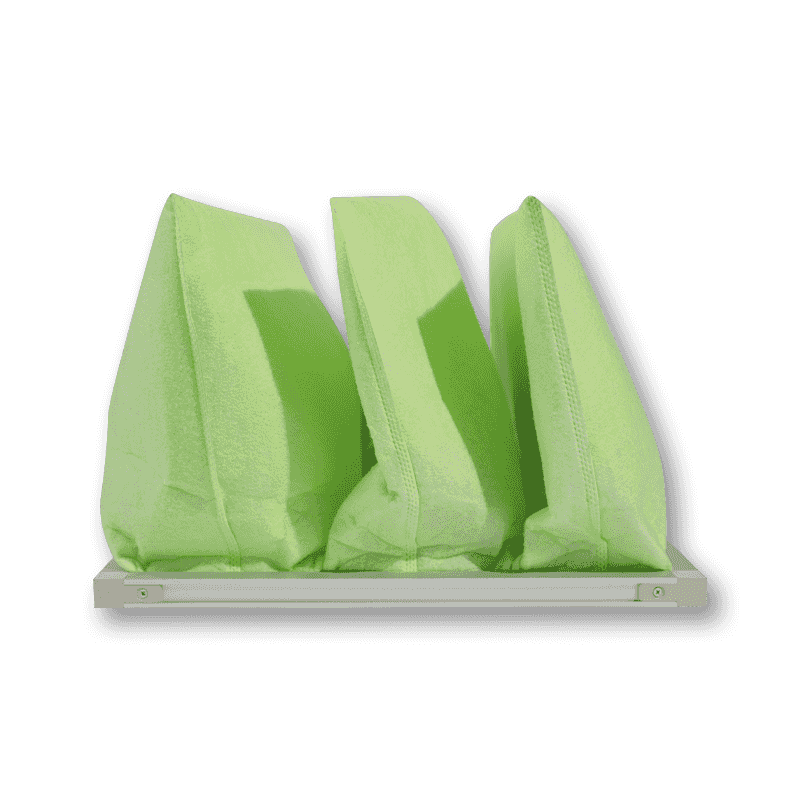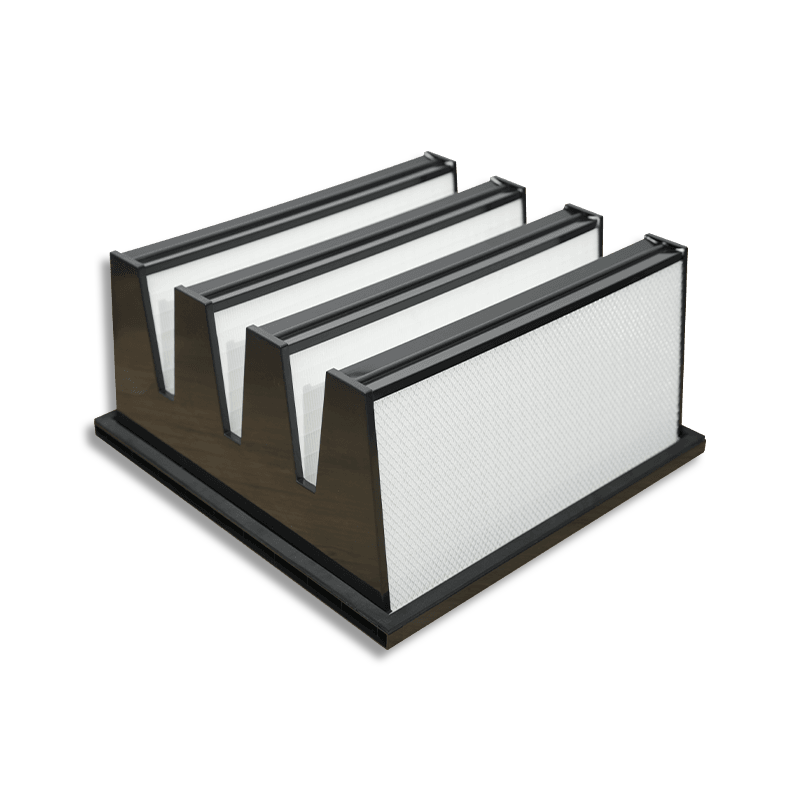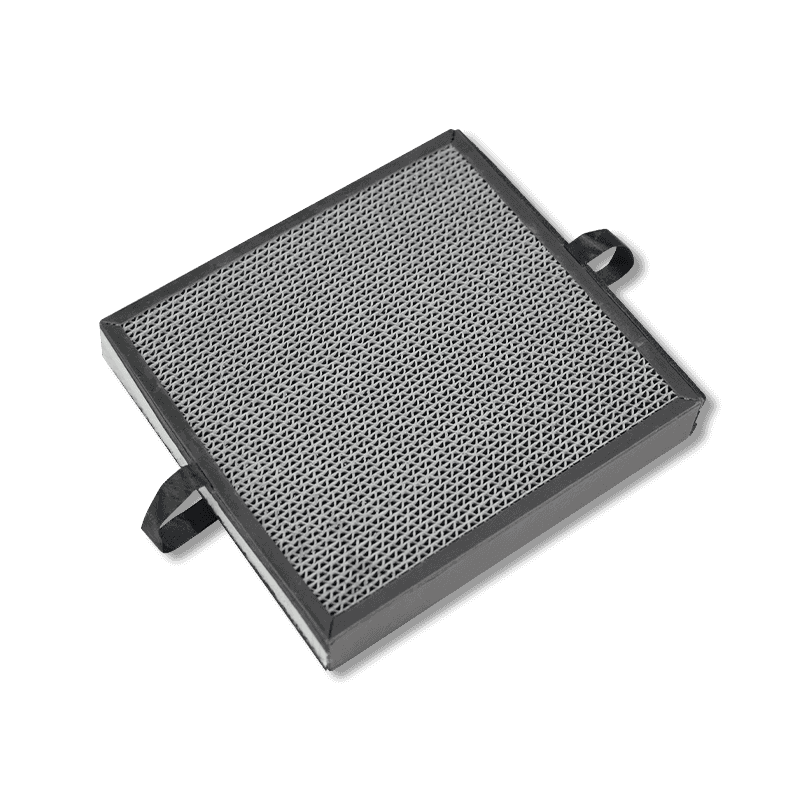1. Improve energy efficiency and reduce energy consumption
Aluminum-based cold catalytic filters are designed with highly efficient catalytic properties to initiate reactions at lower temperatures and continue to operate. Compared with traditional air purification equipment, aluminum-based cold catalytic filters do not need to be heated to high temperatures to complete chemical reactions, which greatly reduces energy requirements. In traditional catalysts or filters, it is usually necessary to heat to high temperatures to activate the catalyst, which not only consumes a lot of energy, but also increases the overall energy consumption of the equipment. The aluminum-based cold catalytic filter, by optimizing the structure and surface properties of the material, can carry out effective catalytic reactions at normal or low temperature environments, consumes less energy, reduces power demand, and thus significantly reduces equipment operation costs. energy consumption.
The long service life of the aluminum-based cold catalytic filter means that businesses or households do not need to replace the filter frequently, avoiding excessive production and transportation processes, and reducing energy consumption in manufacturing and waste. During long-term use, these filters can not only effectively remove harmful substances in the air, but also help users save electricity and maintenance costs due to their low energy consumption. The application of aluminum-based cold catalytic filters not only improves air purification efficiency, but also provides an effective solution for energy conservation and reduction of energy consumption.
2. Reduce greenhouse gas emissions
The aluminum-based cold catalytic filter adopts cold catalytic technology, which can effectively decompose harmful gases and pollutants in the air under normal or low temperature conditions, which saves energy and also has a positive impact on the environment. Compared with traditional catalytic filters, aluminum-based cold catalytic filters do not need to be heated to high temperatures during operation, which avoids waste of energy and related greenhouse gas emissions. Traditional catalytic purification technology, especially high-temperature catalytic reactions, will produce greenhouse gases such as carbon dioxide, and the low-temperature working characteristics of the aluminum-based cold catalytic filter effectively reduce the production of these pollutants.
The catalytic effect of the aluminum-based cold catalytic filter is not limited to air purification. It can also decompose harmful substances such as nitrogen oxides and volatile organic compounds (VOCs), reducing chemical pollutants in the air. If these harmful gases are not effectively removed, they may cause damage to the atmosphere and further exacerbate the greenhouse effect. Aluminum-based cold catalytic filters play an important role in reducing greenhouse gas emissions, helping to reduce the potential threat of global warming.
3. Improve air quality and promote environmental protection
The core function of the aluminum-based cold catalytic filter is to remove harmful substances in the air through its efficient catalytic performance, such as PM2.5, volatile organic compounds (VOCs), formaldehyde, benzene and other pollutants. Not only do these pollutants pose serious threats to human health, they may also have long-term negative impacts on ecosystems. The high efficiency of the aluminum-based cold catalytic filter in air purification makes it an ideal choice for improving indoor and outdoor air quality, especially in industrial areas, urban environments and homes.
In industrial environments, aluminum-based cold catalytic filters can effectively remove harmful gases and particulate matter, reducing the health risks of toxic substances to workers and surrounding residents. In a home environment, especially in homes with children, the elderly or those with respiratory diseases, using this filter can significantly improve indoor air quality and reduce the health hazards of air pollution. The aluminum-based cold catalytic filter can also effectively remove toxic gases in the air, reduce indoor air pollution sources, help reduce the occurrence of respiratory diseases and allergic reactions, thereby improving people's quality of life.
4. Resource recycling and environmentally friendly materials
A significant advantage of the aluminum-based cold catalytic filter is that it uses environmentally friendly and recyclable aluminum alloy materials. As a lightweight and corrosion-resistant metal, aluminum alloy not only has excellent mechanical properties, but also has strong recycling value. Traditional air purification filters are usually made of plastic or metal materials. These materials are often difficult to recycle after the end of their service life, or may produce secondary pollution during the recycling process. The aluminum alloy material of the aluminum-based cold catalytic filter can be completely recycled and used again to produce other industrial products, avoiding environmental pollution and resource waste.
The aluminum-based cold catalytic filter also follows environmentally friendly principles during the production process. By using cold catalytic technology, this filter can work efficiently at room temperature, reducing energy consumption and greenhouse gas emissions during the production process. At the same time, the aluminum-based cold catalytic filter does not require a large amount of chemical additives, which makes its manufacturing and use process more environmentally friendly and reduces the use and emission of toxic substances. This not only reduces the waste of resources, but also provides support for promoting green economy and sustainable development.
5. Save costs and promote sustainable development
The low energy consumption and long life of the aluminum-based cold catalytic filter make it a very economical air purification solution. Because it can effectively carry out catalytic reactions at normal temperatures, it consumes far less energy than traditional air purification technologies, which not only reduces the electricity expenses of households or businesses, but also reduces the demand for electricity resources. The efficiency and durability of the filter itself also reduce replacement frequency and maintenance costs. Compared with traditional filters that require regular replacement or maintenance, the aluminum-based cold catalytic filter can maintain its high efficiency for a long time, reducing the cost of long-term use.
The energy-saving and environmentally friendly features of the aluminum-based cold catalytic filter are also in line with the concept of sustainable development. It not only helps businesses and households save energy costs, but also contributes to environmental protection. Saving energy and reducing pollution emissions are important means to promote global sustainable development. Aluminum-based cold catalytic filters help achieve the goals of a green economy and a low-carbon society by reducing energy consumption, reducing greenhouse gas emissions and increasing resource recovery rates. The use of aluminum-based cold catalytic filters is a long-term investment in line with modern environmental protection trends. It can not only bring economic benefits to users, but also contribute to global environmental protection.

 English
English Español
Español 日本語
日本語
